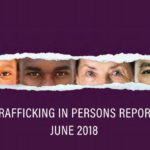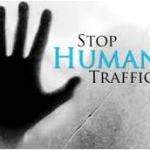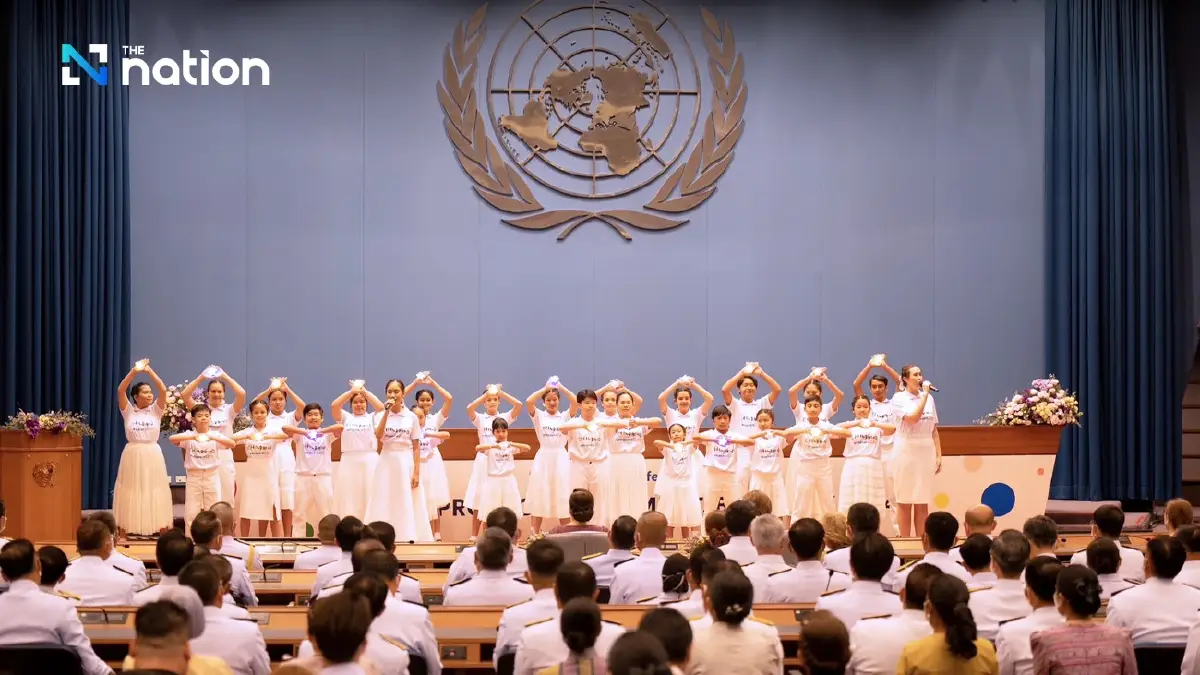
A UN summit in Bangkok last week underscored the crisis of children being sexually exploited and abused both online and offline, while experts presented prevention and protection strategies.
Sweden’s Queen Silvia, who has devoted decades to combatting child sexual abuse and trafficking, was a keynote speaker at the event.
The Child Protection Summit Bangkok 2024, held at the UN Conference Centre on Thursday (May 16), featured panel discussions on child exploitation and abuse. Key sessions included “Key Steps to Reduce Child Sexual Abuse Online” and “Protecting Children from Sexual Abuse: Challenges and Key Steps Forward”.
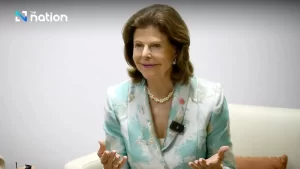
The session on the first topic was led by Dr Mark Charoenwong from the Office of the Attorney-General. Joining him were Pol Captain Khemachart Prakayhongnamee from the Department of Special Investigation (DSI), Dr Srida Tan-atipanit from the Internet Foundation of Thailand, and child protection expert Guillaume Landry from ECPAT International, the only NGO network dedicated to fighting against the sexual exploitation of children.
“Children often know how to use smartphones before they learn to speak,” Landry noted.
In Thailand, 9% of internet-using 12-17-year-olds – approximately 400,000 children annually – are subjected to online sexual exploitation and abuse, he said.
“Most children disclose their trauma to people they are close to, particularly their mothers. Yet, both caregivers and children are reluctant to use formal reporting channels,” he said.
Scourge of pornography
Srida, however, said that the number of child abuse cases reported to ThaiHotline, INHOPE and other complaint centres has risen significantly and is expected to rise further.
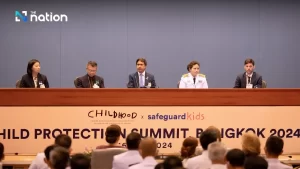
“Most child sexual abuse cases on the internet occur among children aged three to 13, according to a 2022 report from INHOPE [a global network of member hotlines leading the fight against Child Sexual Abuse Material online]. This is in contrast to about 10 years ago, when the majority of victims were secondary students,” she said.
“The cycle of trading child pornography online seems endless,” Srida lamented. “Young victims suffer profound mental trauma, and some even resort to suicide.”
Khemachart agreed, noting that the Covid-19 pandemic has driven more children into the online realm, making them more accessible to perpetrators.
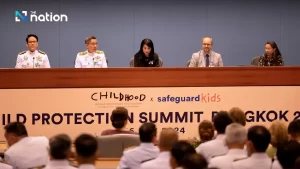
The second session, “Protecting Children from Sexual Abuse: Challenges and Key Steps Forward”, featured Thientong Prasanapanich from the Department for Children and Youth. Joining him were Muhammad Rafiq Khan from UNICEF, Dr Sombat Tapanya from the Peace Culture Foundation and Dr Kanthamanee Ladaphongphatthana from Alternative Care Thailand.
Thienthong spoke about his department’s collaboration with UNICEF to establish Child Protection Community Centres nationwide by next year.
“Suicide is the third leading cause of death among adolescent boys and girls in Thailand, with 13-17% attributed to violence and bullying,” Khan added.
Dr Sombat, meanwhile, revealed that 54% of children experience abuse from caregivers. “Thailand’s response is predominantly defensive rather than proactive. We need national policies to empower parents with the knowledge and skills to raise healthy children. Parent training centres should be established in every province,” he said.
Kanthamanee, meanwhile, highlighted issues within daycare centres, where children often face sexual harassment and abuse by peers or caregivers, leading to violent behaviour such as setting mattresses or even their friends on fire to escape the environment.
“More than 70% of Thai shelters are not legally registered. Quality care, not more shelters, is needed,” she said, adding that shelters often attract paedophiles seeking easy access to victims, exacerbating their mental health issues and suicide risks.
“It is time for Thailand to seize this opportunity to put into effect a legal framework by collaborating with all relevant parties to end the exploitation and abuse of children in Thailand,”
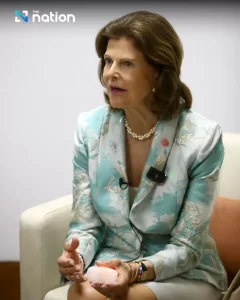
What Queen Silvia says
Following the panel discussions, Queen Silvia of Sweden told the media about her 25 years of work with the World Childhood Foundation, which she founded in 1999.
“When it came to pornographic content, things were completely different 25 years ago. At that time, people dared not even discuss it. Now that other nations are tackling these problems, the situation is improving. We have to do something about it,” Queen Silvia said in a group interview.
The queen recalled that more than 20 years ago, many foreign paedophiles visited Thailand and even if they were arrested for mistreating children here, they were able to return home with ease because there were no legal penalties. Now, however, they stand to face legal consequences back home if they harm children overseas.
“There are many organisations in Thailand working to address the issues [of child exploitation and abuse]. This is a moment of hope to see these organisations continue to put forward and keep up with efforts to end child abuse in Thailand,” she said.
She also acknowledged the challenges parents face in the digital age, where children often know more about the online culture than they do. To overcome this, she said, parents should engage more with the children in real-world activities to reduce their online exposure.
“It’s not easy being parents. We have to admit that kids are better than us at using the internet. Despite how beautiful and fantastic it is, the internet world is very dangerous,” she said. “It is not mission impossible, it just takes a long time for huge issues like this to be solved.”

